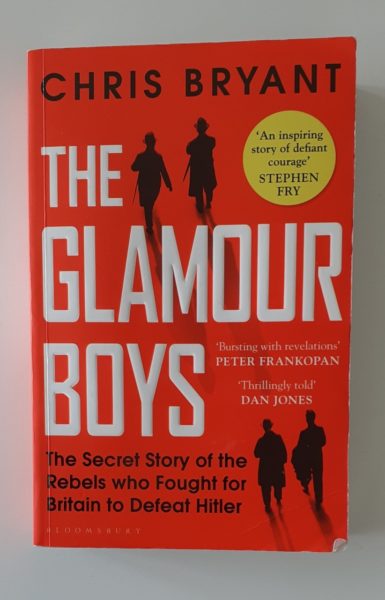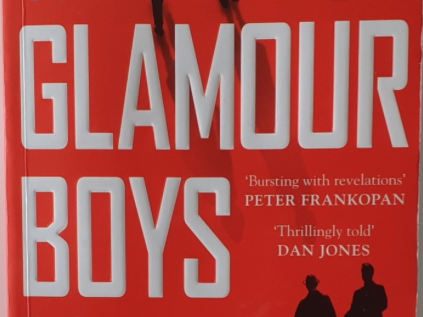
Chris Bryant’s Glamour Boys starts off with a simple premise, to tell the stories of ‘the nearly queer and very queer’ (Bryant’s words) UK MPs who served in government during the build up to World War II.
These include Robert Cartland – a former Birmingham MP and brother of the novelist Barbara Cartland – who was killed in action in May 1940 during the Battle of Dunkirk; and John ‘Jack’ McNamara, British Army Officer and MP for Chelmsford who was the last British Officer to be killed in action during the war.
Growing up gay in 1970s I heard many stories of what life was like before ‘legalisation’ under the 1967 Sexual Offences Act. I was therefore attracted to this book in order to get a grasp of the gay history of the period. To that extent it does not disappoint, and paints lurid pictures of pre-WW2 Berlin as well as of underground bars and gentlemen’s clubs in London and various other places. It also highlights the high risks taken by those that went to such places.
Bryant deals with these aspects of the book in a gossipy, waspish style that would have been very much at home in the queer community of the time, but also not alien to me who first ventured onto the London scene in the late 70s and 80s. He also gloriously name drops the rich, famous and the downright infamous of the time: Noel Coward, Guy Burgess, Unity Mitford, Vita Sackville-West and a whole host of others.
The book also gives a strong account of the social, economic and political issues of the time. When Bryant deals with the parliamentary debates, his style changes somewhat. Though still light and often humorous, he his also caustic in his commentary around the views taken by some of those in power.
The fact that most of the MPs were quite willing and ready to appease Hitler, and in some ways to agree with him, is made strikingly clear. The MPs were convinced that the British people – having only twenty years before fought World War I – would not back a second war and that it was therefore best to try for a path of peace.
Those who wanted only peace were willing to overlook what they knew Hitler was doing, some saying that he was simply ‘cleaning up’ and that ‘we needed to do the same.’ Bryant makes it clear that a large number of MPs and much of the general public had little or no sympathy for the plight of those who were being sent to the concentration camps, who as well as Jews and communists included homosexuals.
This is not a gay history book. It is a witty and at times entertaining history book that highlights much about the values and thoughts that prevailed in Britain at the time, whilst telling the stories of some very brave men that just happened to be gay. It is a solid and riveting piece of work on a period of British history that was not quite how it is taught to us.
Glamour Boys provides a clear and concise insiders’ view that uses the stories of those who were there to bring a whole new perspective to the events that took Britain into World War II.

